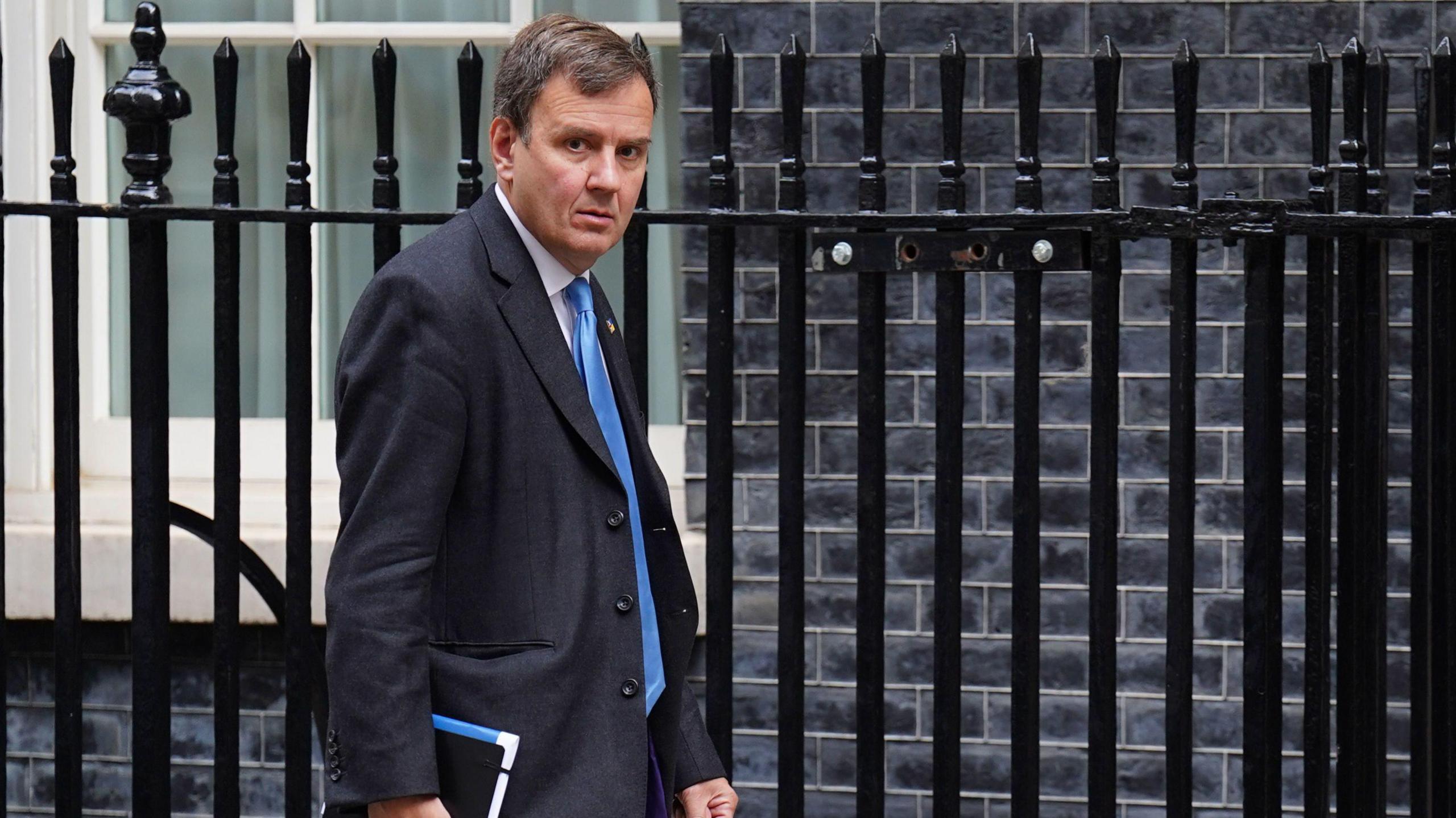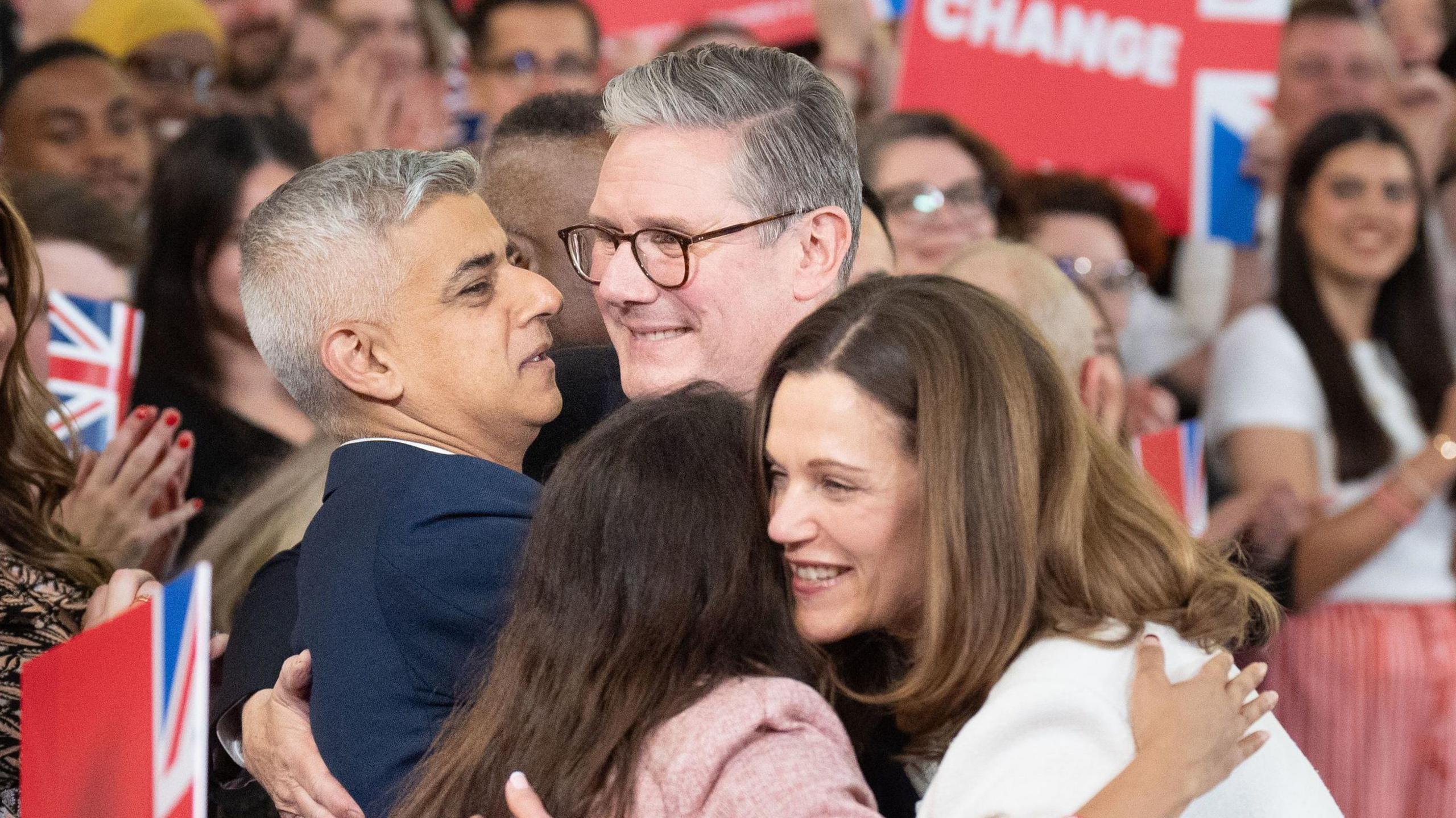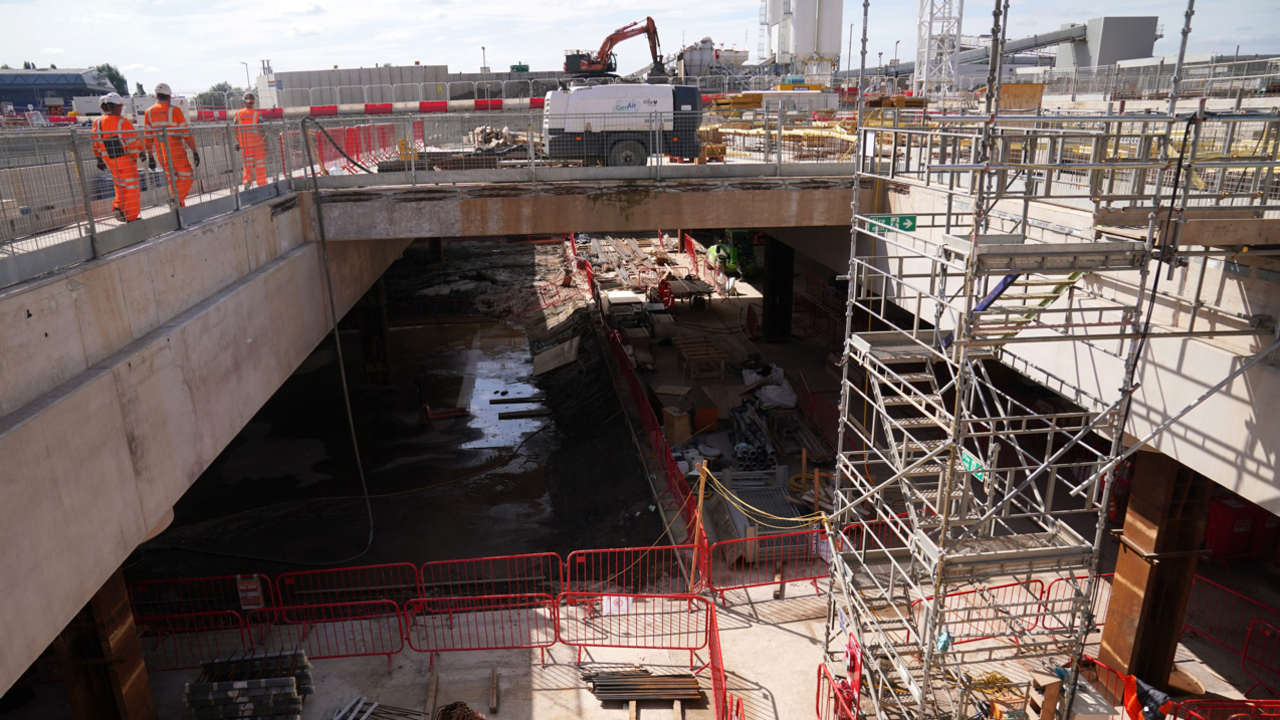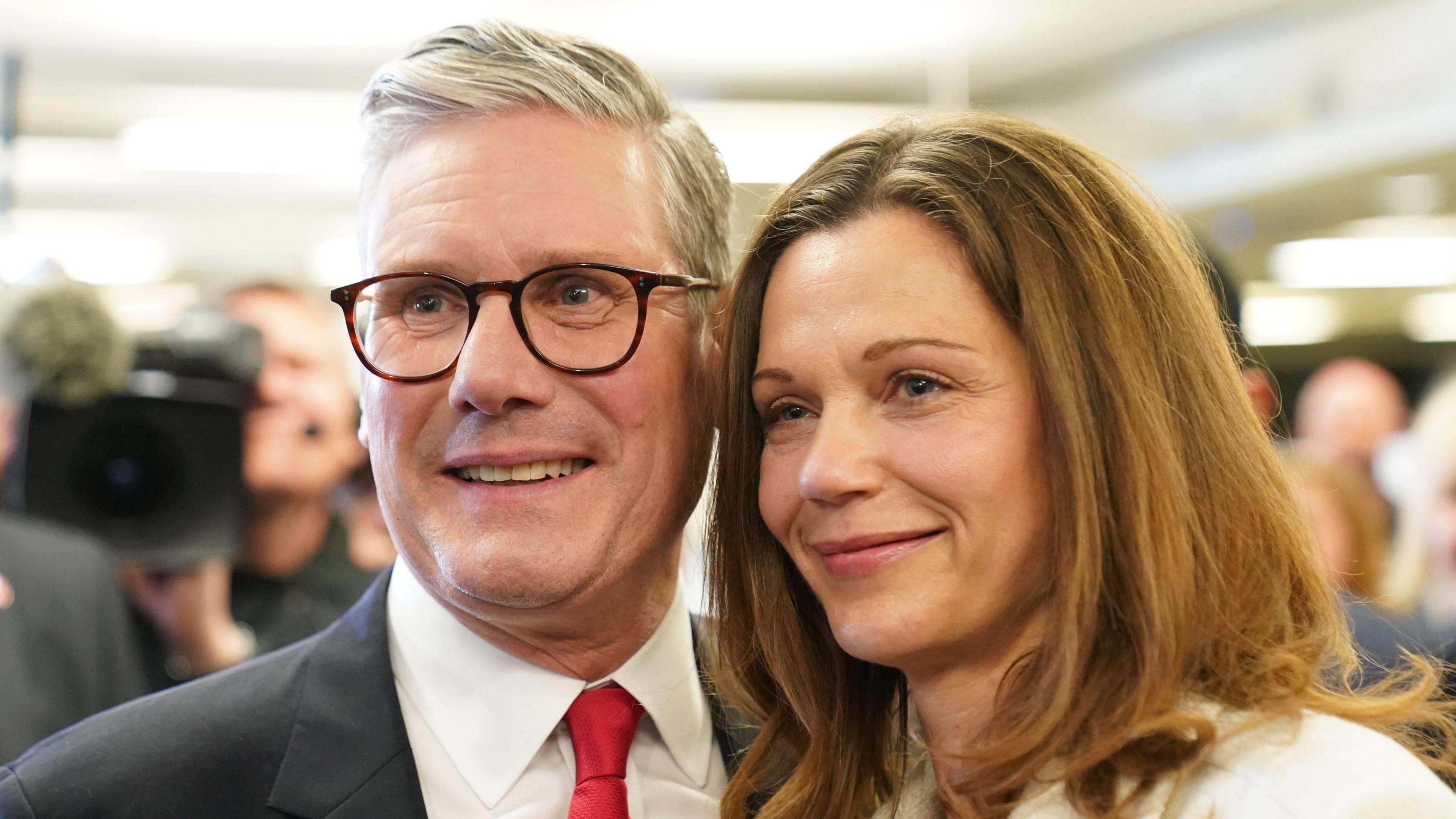What impact will a Labour government have on London?

Greg Hands had urged people to vote for Conservatives to ensure scrutiny in London's politics
- Published
As part of what turned out to be his failed bid for political survival, the now former Tory minister for London, Greg Hands, had offered a warning to voters.
Think what would happen if your mayor, MP and local council were all Labour? Where would be the scrutiny and the accountability?
To a significant extent, we are soon going to find that out, because there are now large swathes of the capital with little or no Tory representation.
Mr Hands himself lost by just 152 votes.
It could have been worse for the Conservatives, but not much worse. They are left with nine MPs, the lowest on record.
Labour now have 59 of the capital’s 75 MPs; run 21 of its 33 local authorities, and Sadiq Khan has just been returned for a third term at City Hall.
During the recent mayoral campaign he asked Londoners to “imagine what a Labour mayor and government could do together”.
Overnight, as Labour strengthened its hold on the capital, he repeated that message that there was a cause for optimism because the central relationship would be so much more constructive.
“For the last eight years, we have had a Tory government putting obstacles in our way. That will not happen with a Labour government,” he said.

Sadiq Khan has said a Labour government would make it easier for him as London mayor
Over those years, Mr Khan has consistently blamed Tory neglect and underinvestment for the capital’s problems. In the future this is unlikely to be a credible option. The Tories say he will soon not have this place to hide.
In the determination to be seen as financially disciplined, Labour’s frontbench Treasury team has made clear that extra investment will be limited, certainly for the foreseeable future.
Instead the recent manifestoes – both Sir Keir Starmer’s and Mr Khan’s – offer a set of pledges which focus on reform rather than significantly more money.
On housing, Labour is promising 40,000 more social rented homes by 2030, beyond both the next mayoral and parliamentary terms. Many of these homes are already started and funded by the outgoing Tory government, and there is no certainty on how much Labour will provide when the affordable homes programme comes up for renewal in 2026.
With policing, there is a pledge of 1,300 more uniformed officers over the next four years, but no clarity yet on how many will be warranted officers rather than community support officers. Labour say there are savings to come from police forces getting together to buy what they need under nationwide procurement reforms.
On transport, the Financial Times has reported, external that the Labour government will “snub” Sadiq Khan’s demand to take over suburban rail lines like South Eastern which end but don’t start in the capital. There has been no signal of more money to build new or maintain existing infrastructure like the Central Line. Will Labour be happy for Mr Khan to continue to freeze Transport for London fares in future?
The pledge to overhaul planning and identify “grey” bits of green belt land that should be capable of being developed will probably lead to tensions but could free up significant areas for more homes in the capital.
Professor Tony Travers from the London School of Economics says as well as planning and transport, the mayor and government may not see eye-to-eye on granting City Hall more devolutionary powers.
“Relations may be less scratchy than with the Tories, but there are still likely to be tensions,” he said.
Independent thinking

Who will pay for the final stretch between Euston and Old Oak Common? No answer yet
In other respects, mayoral policies may not exactly align with those of the new Labour government, but are likely to be seen as complementary.
Labour is pledging a national programme of breakfast clubs to nourish children before school starts, while the mayor has promised to fund free school lunches - for those not currently eligible for them from the government - for the next four years.
The capital will lay claim to a decent share of the extra doctor’s appointments and Stem (science, engineering, technology and mathematics) subject teachers promised across the UK by the new government.
There are unknowns like what Labour will do about the High Speed 2 rail link pared back by Rishi Sunak, notably who will pay for the final stretch between Euston and Old Oak Common where the Conservatives had wanted more private sector investment.
History tells us having the occupants of Downing Street and City Hall of the same political persuasion by no means guarantees universal harmony.
At times of political peril like the London riots, Boris Johnson bugged David Cameron's government for more money for policing - and got help to keep fares down at times too.
There’s also no accounting for personalities - Mr Johnson was a regular thorn in the government's side over Brexit.
It would be odd indeed if there were not future strains.
The challenge may be keeping them under wraps.
On the other hand there may be times when Londoners expect some independent thinking from the occupant of City Hall, even though it may not make him popular in Westminster.
Listen to the best of BBC Radio London on Sounds and follow BBC London on Facebook, external, X, external and Instagram, external. Send your story ideas to hello.bbclondon@bbc.co.uk, external
- Published5 July 2024
